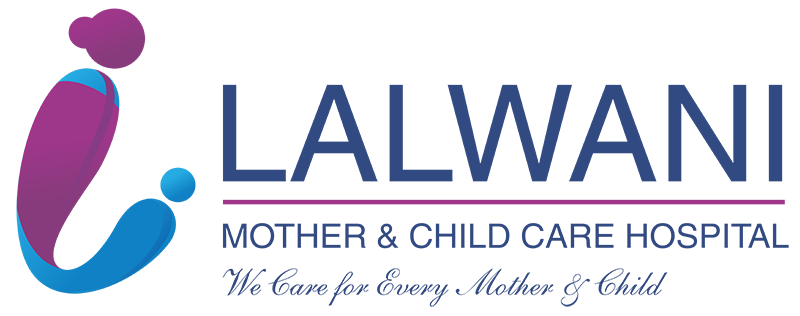Pregnancy is a profound journey, touching both body and soul. Nurturing the life growing within you requires love and care. Led by the compassionate guidance of Dr. Sunita Lalwani & Dr. Mahima Lalwani, our esteemed pregnancy specialist and one of the top gynecologist in Pune, Lalwani Mother and Child Hospital is dedicated with her team to provide you the highest standard of care for you and your baby.
As one of the best maternity hospital in Pune, we strongly think that a good diet during pregnancy is more than just eating for yourself and your baby. It’s about the joy of caring for both yourself and your baby from within.Top of Form
Let’s explore some expert pregnancy diet tips, designed to nourish your pregnancy journey and foster a deeper connection with your little one:
Pregnancy Diet During First Trimester (Week 1 to Week 12):
During the first trimester, the focus is on laying the foundation for the baby’s development and supporting the mother’s changing body.
- Folate-Rich Foods:
- Nutrients: Folate (Vitamin B9).
- Benefits: Folate is crucial for the development of the baby’s neural tube, which forms the brain and spinal cord.
- Iron-Rich Foods:
- Nutrients: Iron.
- Benefits: Iron is essential for producing haemoglobin, the protein in red blood cells that carries oxygen to tissues and organs. During pregnancy, the body’s blood volume increases, requiring more iron to prevent anaemia and support the baby’s growth and development.
- Calcium Sources:
- Nutrients: Calcium, Vitamin D.
- Benefits: Calcium is vital for building strong bones and teeth for the baby. It also helps in muscle, heart, and nerve function. Vitamin D aids in calcium absorption, promoting bone health for both the mother and the fetus.
- Healthy Fats:
- Nutrients: Omega-3 fatty acids, DHA (Docosahexaenoic acid).
- Benefits: Omega-3 fatty acids, particularly DHA, are crucial for the development of the baby’s brain and eyes. They also support the mother’s cardiovascular health and reduce the risk of preterm birth.
- Whole Grains:
- Nutrients: Fiber, B vitamins.
- Benefits: Whole grains provide sustained energy and help prevent constipation, a common pregnancy symptom. B vitamins, such as thiamine, riboflavin, and niacin, support energy metabolism and fetal development.


Pregnancy Diet During Second Trimester (Week 13 to Week 26):
The second trimester is characterized by rapid fetal growth and increasing nutritional demands.
- Protein-Rich Foods:
- Nutrients: Protein.
- Benefits: Protein is the building block of cells and tissues, essential for the growth and development of the baby’s organs, muscles, and immune system. It also supports the mother’s tissue repair and helps maintain healthy amniotic fluid levels.
- Omega-3 Fatty Acids:
- Nutrients: DHA (Docosahexaenoic acid).
- Benefits: DHA is critical for the development of the baby’s brain, nervous system, and eyesight. Adequate intake of omega-3 fatty acids during pregnancy is associated with improved cognitive function in children.
- Vitamin C Sources:
- Nutrients: Vitamin C.
- Benefits: Vitamin C is an antioxidant that supports the immune system and helps the body absorb iron from plant-based sources. It also plays a role in collagen synthesis, important for the development of the baby’s bones, skin, and connective tissues.
- Leafy Greens and Vegetables:
- Nutrients: Vitamin K, magnesium, antioxidants.
- Benefits: Leafy greens and vegetables provide a variety of nutrients crucial for fetal development, including vitamin K for blood clotting, magnesium for muscle and nerve function, and antioxidants for cellular protection.


Pregnancy Diet During Third Trimester (Week 27 to Birth):
In the third trimester, the baby continues to grow rapidly, and the mother’s nutritional needs remain high to support both herself and the baby.
- High-Fiber Foods:
- Nutrients: Fiber.
- Benefits: High-fiber foods help prevent constipation, a common issue during pregnancy, and promote healthy digestion. They also support blood sugar control and may reduce the risk of gestational diabetes.
- Healthy Snacks:
- Nutrients: Protein, healthy fats, vitamins, and minerals.
- Benefits: Nutrient-dense snacks provide energy and essential nutrients for the mother and the baby between meals. They can help stabilize blood sugar levels and reduce the risk of excessive weight gain.
- Hydration:
- Nutrients: Water.
- Benefits: Staying hydrated is crucial for maintaining amniotic fluid levels, regulating body temperature, and supporting nutrient transport to the baby. Dehydration can lead to complications such as preterm labour and low amniotic fluid levels.
- Calcium and Magnesium:
- Nutrients: Calcium, magnesium.
- Benefits: Calcium and magnesium work together to support bone health, muscle function, and nerve transmission. Adequate intake of these minerals during pregnancy can reduce the risk of preeclampsia and support the baby’s skeletal development.
- Iron-Rich Foods (continued):
- Nutrients: Iron.
- Benefits: Iron plays a crucial role in preventing iron deficiency anaemia, which can lead to fatigue, weakness, and complications during pregnancy. It also supports oxygen transport to the baby and helps prevent preterm birth and low birth weight.
- Spinach: A leafy green vegetable packed with folate, spinach is versatile and can be added to salads, omelettes, or smoothies.
- Avocado: Avocado is not only delicious but also rich in folate. It can be mashed and spread on toast or added to salads and sandwiches.
- Lentils: Lentils are an excellent plant-based source of folate. They can be used in soups, stews, salads, or made into lentil burgers.
- Broccoli: Broccoli is a cruciferous vegetable that contains folate along with other essential nutrients.
- Beans and Legumes: Beans and legumes like chickpeas, lentils, and kidney beans are excellent plant-based sources of iron. They can be added to salads, soups, or made into veggie burgers.
- Fortified Breakfast Cereals: Many breakfast cereals are fortified with iron. Look for whole-grain cereals that provide added nutrients without excessive sugar.
- Tofu: Tofu is a good source of iron, especially for vegetarians and vegans.
- Dairy Products: Milk, yogurt, and cheese are rich sources of calcium. Opt for low-fat or fat-free varieties to limit saturated fat intake.
- Fortified Plant-Based Milk: Plant-based milk alternatives like almond milk, soy milk, or oat milk are often fortified with calcium and vitamin D. Check the labels to ensure adequate fortification.
- Tofu (with Calcium Sulfate): Tofu made with calcium sulfate is a good plant-based source of calcium. It can be used in various dishes, including stir-fries, curries, and smoothies.
- Leafy Greens (e.g., Kale): Dark leafy greens like kale, collard greens, and bok choy contain calcium as well as other essential nutrients. Incorporate them into salads, soups, or sautéed dishes.
- Fatty Fish (e.g., Salmon): Fatty fish like salmon, mackerel, and trout are rich sources of omega-3 fatty acids, particularly DHA. Add at least two servings of fatty fish per week in your diet.
- Chia Seeds: Chia seeds are a plant-based source of omega-3 fatty acids, specifically alpha-linolenic acid (ALA).
- Walnuts: Walnuts are another plant-based source of ALA. They make a convenient and nutritious snack on their own or can be added to salads, baked goods, or trail mix.
- Flaxseeds: Flaxseeds are high in ALA and can be ground and added to smoothies, baked goods, or sprinkled on top of cereal or yogurt.




Foods to Avoid During Your Pregnancy
It’s important to be cautious of certain foods during pregnancy to minimize potential risks. Avoid raw or undercooked meat, unpasteurized dairy products, certain types of fish, alcohol, caffeine, and artificial sweeteners to safeguard your health and your baby’s well-being.
Managing Common Pregnancy Symptoms Through Diet
Pregnancy symptoms such as morning sickness, constipation, and heartburn can be managed through dietary adjustments. Incorporating fiber-rich food, and opting for smaller, more frequent meals can help alleviate these discomforts.
Your Journey at The Best Pregnancy Hospital In Pune
At Lalwani Mother and Child Hospital, we understand that pregnancy is more than just a physical experience – it’s a journey of the heart, a tapestry of emotions woven with threads of love and hope. As you navigate the ups and downs of this extraordinary voyage, know that you are not alone. Recognized as the best obstetrics hospital in Pune, our commitment to excellence extends beyond medical expertise to encompass genuine empathy and unwavering support for every expectant mother who walks through our doors. We go beyond traditional medical care to provide comprehensive prenatal care in Pune. The best gynecologist in Pune Dr. Sunita Lalwani & Dr. Mahima Lalwani with our team of dedicated professionals is here to support you every step of the way, offering compassionate care, expert guidance, and a shoulder to lean on when you need it most.

